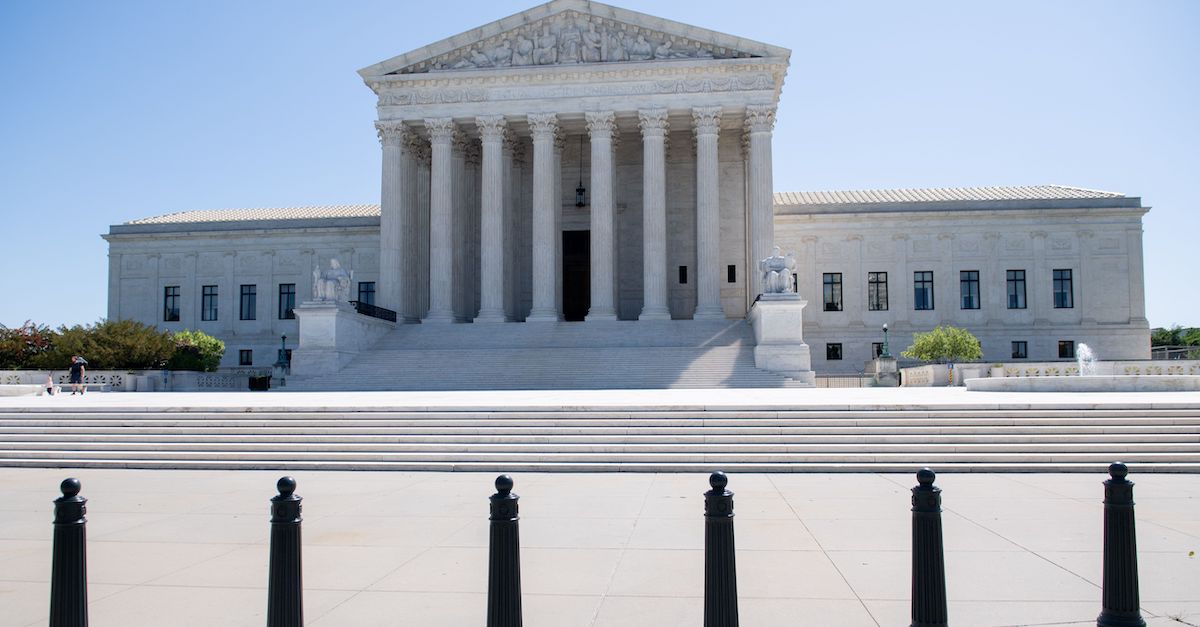
The U.S. Supreme Court on Thursday unanimously ruled that a Delaware lawyer lacked standing to challenge a constitutional provision requiring the state’s major courts to maintain a “political balance” amongst sitting judges. In a unanimous decision, the justices reasoned that attorney James Adams—a political independent—did not demonstrate that he was “able and ready” to apply for a judicial vacancy in the imminent future and, therefore, “failed to show a ‘personal,’ ‘concrete,’ and ‘imminent’ injury necessary for Article III standing.”
Under Delaware’s Constitution, appointments to the states five major courts require that no more than a “bare majority” of judges be members of the same political party. Three of those courts additionally mandate that judges not affiliated with the bare majority be members “of the other major political party.”
Adams, who formerly belonged to the Democratic Party before registering as an independent, filed a lawsuit challenging the provision, claiming it violated the U.S. Constitution’s First Amendment protection of free speech and right to be considered for public office regardless of political affiliation.
In a 12-page opinion penned by Justice Stephen Breyer, the court sidestepped analyzing the constitutionality of the Delaware provisions, saying that Adams’s claimed injuries were hypothetical in nature.
“[Adams], like all citizens of Delaware, must live and work within a State that (in his view) imposes unconstitutional requirements for eligibility on three of its courts,” Breyer wrote. “Lawyers, such as Adams, may feel sincerely and strongly that Delaware’s laws should comply with the Federal Constitution. But that kind of interest does not create standing. Rather, the question is whether Adams will suffer a ‘personal and individual’ injury beyond this generalized grievance—an injury that is concrete, particularized, and imminent rather than ‘conjectural or hypothetical.’”
UC Irvine law professor Rick Hasen said the court’s ruling “ducks [the] major issue about whether states can mandate ‘partisan balance’ on their courts.”
Breyer said records revealed that between 2012 and 2016, when Adams was a practicing attorney, there were 14 judicial openings that he could have applied for but didn’t. It was only after he read a law review article claiming the “political balance” provisions were unconstitutional that he changed his political affiliation and immediately filed his lawsuit.
Breyer noted that if the court were to hold that Adams had standing based only on him saying he intended to apply for a judgeship and nothing else it would “significantly weaken the “longstanding legal doctrine preventing this Court from providing advisory opinions at the request of one who, without other concrete injury, believes that the government is not following the law.”
“Adams has not sufficiently differentiated himself from a general population of individuals affected in the abstract by the legal provision he attacks,” Breyer wrote. “We do not decide whether a statement of intent alone under other circumstances could be enough to show standing. But we are satisfied that Adams’ words alone are not enough here when placed in the context of this particular record.”
Read the full opinion below:
SCOTUS Carney v. Delaware by Law&Crime on Scribd
[image via SAUL LOEB/AFP via Getty Images]